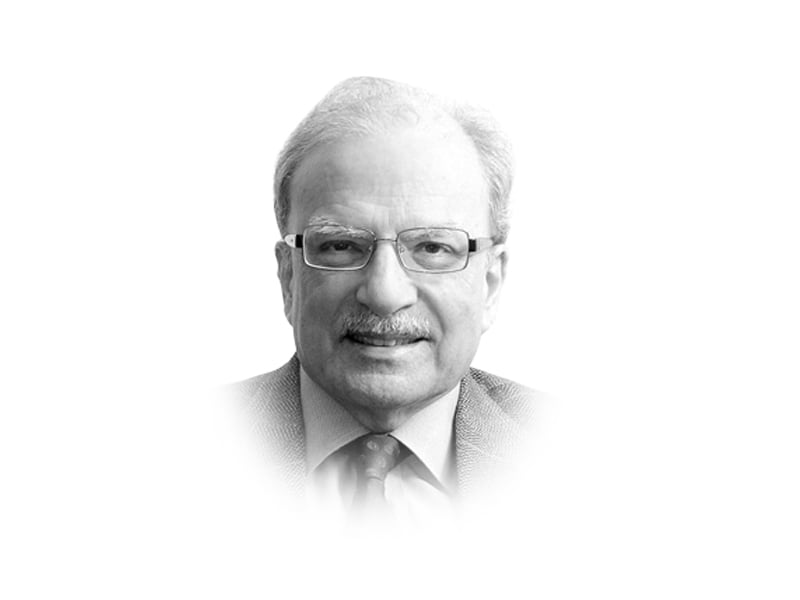
Looking at Pakistan’s economic history since the country was founded in 1947 we can’t help but notice that it has had to deal with several crises that visited it over a period of more than 75 years. The crises had several causes, the most important of these was the failure of the government to increase domestic savings and tap them for the purpose of economic development and social improvement. Time and again, the policymakers operating out of first Karachi, the country’s first capital, and then Islamabad turned to foreigners for help. The International Monetary Fund, the IMF, was a major player in rescuing the country. We are back with Fund one again.
Help also came from the United States, China and the oil producing and exporting countries in the Arab world. These bilateral sources of support had their own strategic reasons for coming to help Pakistan. Since the mid-1970s when millions of Pakistanis went to the Arab world and earned more than what they needed to live in these countries, they sent billions of dollars back to Pakistan. These came to be called “remittances”. Money sent by Pakistanis working abroad not only provided the country with foreign capital it needed but also contributed to moving millions of people out of poverty and into the lower middle class.
This brief overview of 75 years of economic history leads me to ask one important question: Is there a way Pakistan could climb out of these cycles of crises and periods of economic recovery? This could be done by adopting what I have been calling a “new development paradigm”. Pakistan could set itself on a steady course of economic and social development by adopting a new set of public policies. The first component of this set of policies is to achieve political stability. There is now a consensus among social scientists that there is a close link between economic and social progress and political stability. This relationship was the basis of the work by an MIT economist and a Harvard University political scientist that was developed in a best-selling book they titled Why Nations Fail. The book’s emphasis was on what the authors termed “inclusive development” which should replace “exclusive development”. The former meant bringing in all segments of society into the process of development. The latter was to limit the rewards of growth and development to small group of people. Most of the time, Pakistan has followed the exclusive rather than the inclusive path. How do we move from the exclusive to the inclusive development paradigm? The first part of the answer is by adopting a set of policies that would raise domestic savings rate and tax-to-GDP ratio.
Pakistan needs a new development paradigm not only to move towards financial self-sufficiency. The new approach should also deal with the rapidly changing global economic environment. No country — certainly not a country such as Pakistan which is located in a sensitive part of the world — can ignore how the globe is being transformed. I will take up this subject later in this series of articles but at this time help the current set of policymakers tasked with moving the country along several paths to merge them to define one way of making Pakistan an important part of the global system. I will first deal with what I have defined above as financial self-sufficiency.
It is perhaps because I don’t live in Pakistan but come back to the country off-and-one that I notice some aspects of life in Pakistan that escapes the attention of those who are the permanent residents. The automobiles I see on the Pakistani roads, visit some of the houses lived in by the well-to-do and listen to the talk about foreign travel, it is quite apparent to me that conspicuous consumption is an important part of life in the country. Not only Pakistanis spend rather than save, they also avoid paying taxes that should finance government expenditure. I was addressing a few days ago the students of Lahore-based Institute of Business Administration in which I was focusing on the need to pay taxes. A young woman interrupted me by saying that she would only pay the government if she was convinced that her money was being well-spent. I responded by telling her that she and other taxpayers had the obligation to pay what the government was demanding by way of taxes. Whether the government was spending well was the business of the national and provincial legislatures and not of individual taxpayers.
Even when people with high incomes save a part of their current incomes, they don’t put their savings in productive activities. I read a study done by some foreign scholars some time ago according to which savings by well-to-do people is invested in real estate rather than in activities that would benefit the economy and society. This is one area where fiscal policy has a role to play. Real estate taxes and rental incomes from home ownership should be heavily taxed to discourage savers from deploying their resources in these activities. The same should be the case for imports of luxury goods and foreign travel if the latter is undertaken for pleasure rather than for conducting business.
There is worrying casualness about the way people treat the fiscal system. When I retired from the World Bank after serving the institution for 26 years, those of us who were going to stay on in the United States were addressed by a tax lawyer. While we were in Bank our salaries were tax-free but once we left the Bank our pensions would be taxed by the Internal Revenue Service, the IRS. He said that that was one part of the American system that should be taken very seriously. Getting on the wrong side of the IRS can be very costly. “They would take away most of what you own, if they believe that you are cheating,” he said. That kind of fear does not exist in Pakistan. One day my wife went to a store to buy some gifts for the people she knows back in the United States. She spent a fair amount. I told the shopkeeper to give us pucca receipt. His answer was revealing. “I’ll give you a super pucca receipt but if you think I am going to pay taxes on this income, you are wrong. Ask the shopkeepers around, and you will get know how little they pay.”
Published in The Express Tribune, March 13th, 2023.
Like Opinion & Editorial on Facebook, follow @ETOpEd on Twitter to receive all updates on all our daily pieces.




1731916090-0/sabrina-(3)1731916090-0-165x106.webp)



1729685382-0/Untitled-design-(57)1729685382-0-270x192.webp)




COMMENTS (1)
Comments are moderated and generally will be posted if they are on-topic and not abusive.
For more information, please see our Comments FAQ